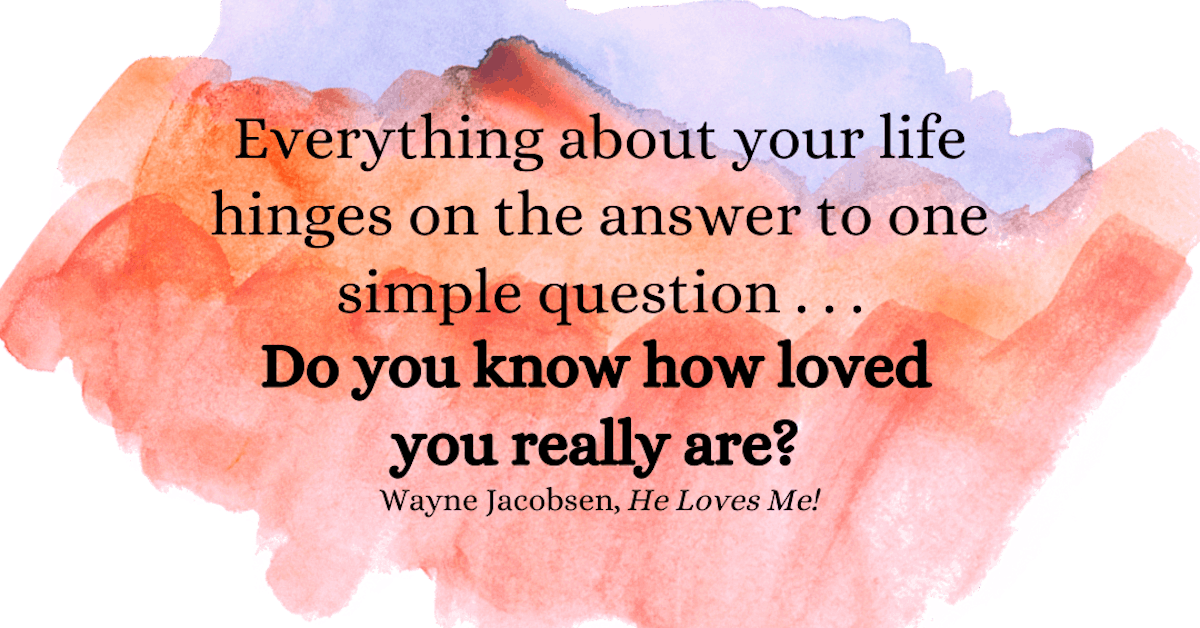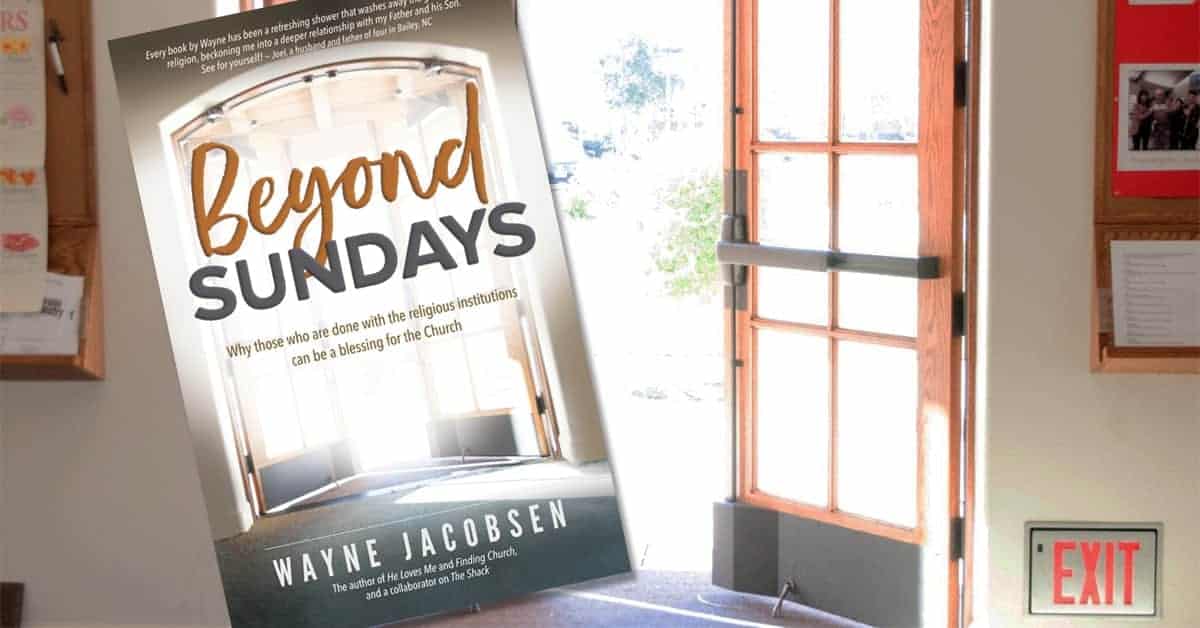Wow! You never what will capture people’s fancy. I’ve enjoyed reading the comments to my last blog and appreciate all who have contributed. I’d like to continue the dialogue with a couple of additional comments:
(1) I agree that the use of judgment COULD be an appeal to guilt or fear. I don’t know how he intended it. However, I didn’t take it that way. By reflecting on it again after Kelly brought it up, I realized that something in my thinking had changed. I have always been bothered by the fact that in the Psalms the creation exults over God’s coming judgment and yet I was taught to live in dread of it. Religion seems to teach us that God’s anger will one day overwhelm him and he’ll rain down fire and retribution with torment upon the world. That’s not how the Pslamists saw it. They saw God’s judgment as his coming to set things right. Who is it that loves him who wouldn’t want that? After the bombings in the UK, the continued war in Iraq and the total sell-out of the world’s powerbrokers to the wealthy, I have long grown weary of the world’s course. I was with a brother yesterday morning when I heard about the bombings in the UK. I heard him whisper under his breath, “Maranatha!” Even so, Lord Jesus, come quickly. His simple expression, more to himself than me, served to refocus my heart as well and breath hope in the midst of such a dire world.
(2) I didn’t read Bono’s comments and think only of how we might reshape our foreign policy. That is far out of my hands. But I did see it as a personal challenge to rethink my spending habits and activities in the face of such overwhelming need faced every day by members of the human family on the other side of the world. Can we truly live with God’s heart and not see beyond our own borders? There are many ways we as individuals can make a difference overseas, even if it is only one person at a time.








Those who sang and celebrated the Psalms of judgement were, at that time in history, not fearing but celebrating God’s justice–because they were suffering and looked forward to relief. God’s judement definately looks different depending on where you are standing. It’s welcome by the suffering and feared by those who cause (or benefit from) the suffering. The problem is that many of us don’t suffer much injustice, and we have a nagging feeling that perhaps we could do something to help those who are (or worse, that maybe the cheap clothes we wear and other extravagances we enjoy just might have a cost that someone else is paying). As I write this, I’m aware that I have such nagging thoughts, and maybe it’s time to address them appropriately with God. We worship the Father because of his grace AND justice/righteousness. If we deny God’s justice, then I suspect we’re in danger of turning away from him and settling for a pretend god.
This is a complicated topic. God’s grace for the rich…it’s not something exactly emphasized in the gospels. But we (speaking of Americans) are rich. No doubt.
By the way, I recently found a very intriguing blog written by an African who doesn’t want any more aid. He makes a very compelling argument, too. I hope you’ll check it out. Go to:
http://bulletsandhoney.blogspot.com/
See the last 9 entries. You really won’t be disappointed — especially if you start comparing some of his points about the "aid enterprise" with the "missionary enterprise."
By the way, I’m the missionary in Japan who you sat down with in Starbucks this past summer. Thanks again for the time.
Those who sang and celebrated the Psalms of judgement were, at that time in history, not fearing but celebrating God’s justice–because they were suffering and looked forward to relief. God’s judement definately looks different depending on where you are standing. It’s welcome by the suffering and feared by those who cause (or benefit from) the suffering. The problem is that many of us don’t suffer much injustice, and we have a nagging feeling that perhaps we could do something to help those who are (or worse, that maybe the cheap clothes we wear and other extravagances we enjoy just might have a cost that someone else is paying). As I write this, I’m aware that I have such nagging thoughts, and maybe it’s time to address them appropriately with God. We worship the Father because of his grace AND justice/righteousness. If we deny God’s justice, then I suspect we’re in danger of turning away from him and settling for a pretend god.
This is a complicated topic. God’s grace for the rich…it’s not something exactly emphasized in the gospels. But we (speaking of Americans) are rich. No doubt.
By the way, I recently found a very intriguing blog written by an African who doesn’t want any more aid. He makes a very compelling argument, too. I hope you’ll check it out. Go to:
http://bulletsandhoney.blogspot.com/
See the last 9 entries. You really won’t be disappointed — especially if you start comparing some of his points about the "aid enterprise" with the "missionary enterprise."
By the way, I’m the missionary in Japan who you sat down with in Starbucks this past summer. Thanks again for the time.
"And worse, with so much of our country’s budget in the hands of the foreign aid donors, the power of Ugandan voters to hold our government to account has been usurped by international creditors – precisely because he who pays the piper calls the tune. "
The above quote from bulletsandhoney.blogspot.com fits right in with a book I recently read by John Perkins, "Confessions of and Economic Hit Man." According to Perkins the one world government people are deliberately creating debtor nations so that they can be controlled.
"And worse, with so much of our country’s budget in the hands of the foreign aid donors, the power of Ugandan voters to hold our government to account has been usurped by international creditors – precisely because he who pays the piper calls the tune. "
The above quote from bulletsandhoney.blogspot.com fits right in with a book I recently read by John Perkins, "Confessions of and Economic Hit Man." According to Perkins the one world government people are deliberately creating debtor nations so that they can be controlled.